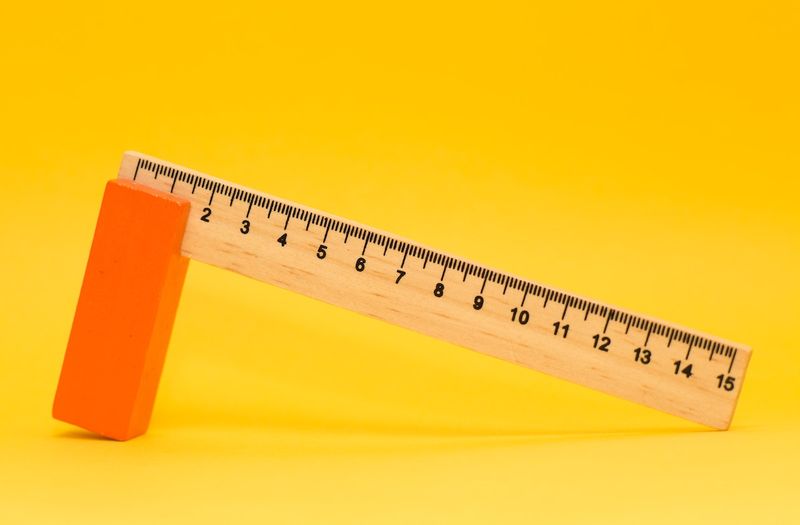Happy birthday! Wait, no, that's wrong. Merry Christmas! Almost! And happy Hanukkah, or whatever else you might celebrate during the winter break. Cheers to a few days of being lazy on purpose 🥂
This is Taylor, CEO of Hedgehog, where you can keep your crypto portfolio organized and balanced. Whether you're naughty or nice, crypto stops for no man, not even Kris Kringle.
Before we get into that, allow me to remind you, every week there's a giveaway at the end of the newsletter. Unlike Santa, I won't invade your home to eat the best cookies! (But if I were Santa, that would only be fair. Don't forget the carrots for the reindeer!)
Not-So-Sneaky Peek
We've been making videos to give you a window in the Hedgehog world:
- How we designed Stacks to make diversified crypto investing convenient — trust me, without this tool, it is the opposite of convenient! I haven't complained about spreadsheets in a minute, but the passion remains…
- Related: Easy-peasy rebalancing of your crypto portfolio
- Wallets and coin pages in the upcoming mobile app
Shoutout to Jon for being the video MVP!
Also, Sonya interviewed the CEO of Polybase, the web3 database. They got into the nitty-gritty of what makes web3 development difficult today, and how Polybase's ideas can improve the status quo.
Tldr: [movie preview announcer voice] This winter Hedgehog is coming to a phone screen near you.
The Reason for the Season… of Digital Currency
It's important to review the fundamentals once in a while, to remember why crypto matters at all, and why it's worth paying attention to the day-to-day news as events unfold. To do that, we need to look beyond the United States, and beyond the present day, into the history of international banking. (I promise it's more exciting than that sounds!)
Latin American exchange Bitso demonstrates the point of crypto, which is to liberate people from the legacy constraints of the traditional banking system, such as your government dictating the money you're able to access:
Crypto winter, while challenging, hasn't been enough to overshadow the opportunities arising from the typical Latin American tempest of political unrest, inflation and currency concerns. Just ask Bitso.
The crypto exchange, which operates in Argentina, Brazil, Colombia and Mexico, is seeing solid growth from institutional clients craving stablecoins as a way to overcome the aforementioned challenges and deal in U.S. dollars.
"They want to have some exposure to dollars but instead of going to a bank and hedging with FX forwards, they buy stablecoins," Bitso's Brazil head, Thales Araújo de Freitas, said during an interview in Miami after speaking at the Fintech Nexus LatAm conference. "Even with the winter, we keep seeing more interest from companies."
Tldr: Stablecoins are easier to acquire than real coins.
The advent of crypto gives people more flexible options to route around economic instability. Independent analyst Lyn Alden explains:
Within nations that have ongoing severe currency devaluation problems, it's often either 1) hard to get your hands on dollars or 2) only possible to get them at a worse exchange rate or 3) risky to store them in domestic banks because they could be confiscated and forcibly converted back to the local currency at the direction of the government or central bank.
She continues to point out that USD itself is not invulnerable to these problems either: "To hold physical cash dollars, or even to store those dollars into a liquid bank account or to hold Treasuries, is to gradually (or sometimes quickly) be debased. And this is the global reserve currency."
Tldr: Stablecoins are… more stable than real coins?
What's the solution? There's no quick, easy answer, but we can turn to technology, which is always upstream of economics. Alden dips into history for an example of how practical innovation drives finance to update and adapt:
Specifically, the first working telegraph was invented in the 1830s. Engineers then spent much of the 1840s and 1850s figuring out how to submerge cables under large bodies of water. After a couple failed attempts, the first long-lasting transatlantic telegraph cables were put in place in the 1860s, and the global banking system quickly became more interconnected in the decades that followed.
From that point, people could transact across the world by updating each others' bank ledgers over telecommunication systems nearly at the speed of light. Meanwhile, gold and silver as bearer assets still moved slowly, and thus had to be increasingly abstracted in order to keep up.
Prior to this, gold and silver were already sometimes abstracted with paper claims due to divisibility limitations or convenience, but once telecommunications technology was invented, their slow velocity made it absolutely necessary to abstract them in order to deal with the mismatch in velocity between global commerce and global monetary settlement.
Tldr: Eventually, gold and silver became just another tradeable commodity, rather than the foundations of money itself.
When Satoshi Nakamoto debuted bitcoin, the possibilities changed again:
The bigger [bitcoin] gets, the more it represents something rather interesting — an international accounting ledger and settlement network, controlled by no individual entity, with a fixed number of its own bearer assets that can be sent around globally at the same speed with which electronic commerce occurs, without the need for separate abstraction or counterparties. A person can still use a custodian/counterparty if they wish too, for convenience or other reasons.
Prior to this, there wasn't a way to send money from one country to another, or even across a country, without going through the banking system or using services that themselves run on the banking system. All long-range value transfers (other than stuffing cash in an envelope or something like that) went through banks and central banks, which are closed, permissioned networks. Now, individuals can send value to other individuals over the internet, quickly and at scale.
That is the "intrinsic value" of the Bitcoin network — it presents capabilities that bank deposits, physical cash, and gold can't do: send permissionless payments globally, or maintain access to your self-custodial funds even if you move around the world, across borders, through airports and such. And in a way that is backed up by more energy and a wider node network than any other cryptocurrency, and with a greater amount of liquidity and salability.
Tldr: I highly recommend reading Alden's whole article. (i.e. Too long, didn't read? Actually no, you should read.)
Currently, bitcoin is too volatile to rival USD as a global reserve currency or a reliable savings vehicle, and maybe it always will be. (It's already better than the worst currencies out there, but that's not a high bar.) Even so, the stablecoins that Bitso's clients are eager to buy represent an option that was "unlocked" by the invention of bitcoin and its new capability for value transfer across borders. Likewise, NFTs use the underlying concept of the blockchain to bring intellectual property management into the 21st century.
Tldr: We're still only just getting started.
I think that's plenty for you to chew on, so now it's giveaway time!
Question of the week: If you were Santa, what cookie / liquid combo would you want people to provide? Hit me with your fave pairing.
Reply with your answer for a chance to win some sweet Hedgehog swag.
Feeling elftastic,
— Taylor
To get future newsletters delivered straight to your inbox every week, sign up here! Check out past newsletters in the complete archive.






